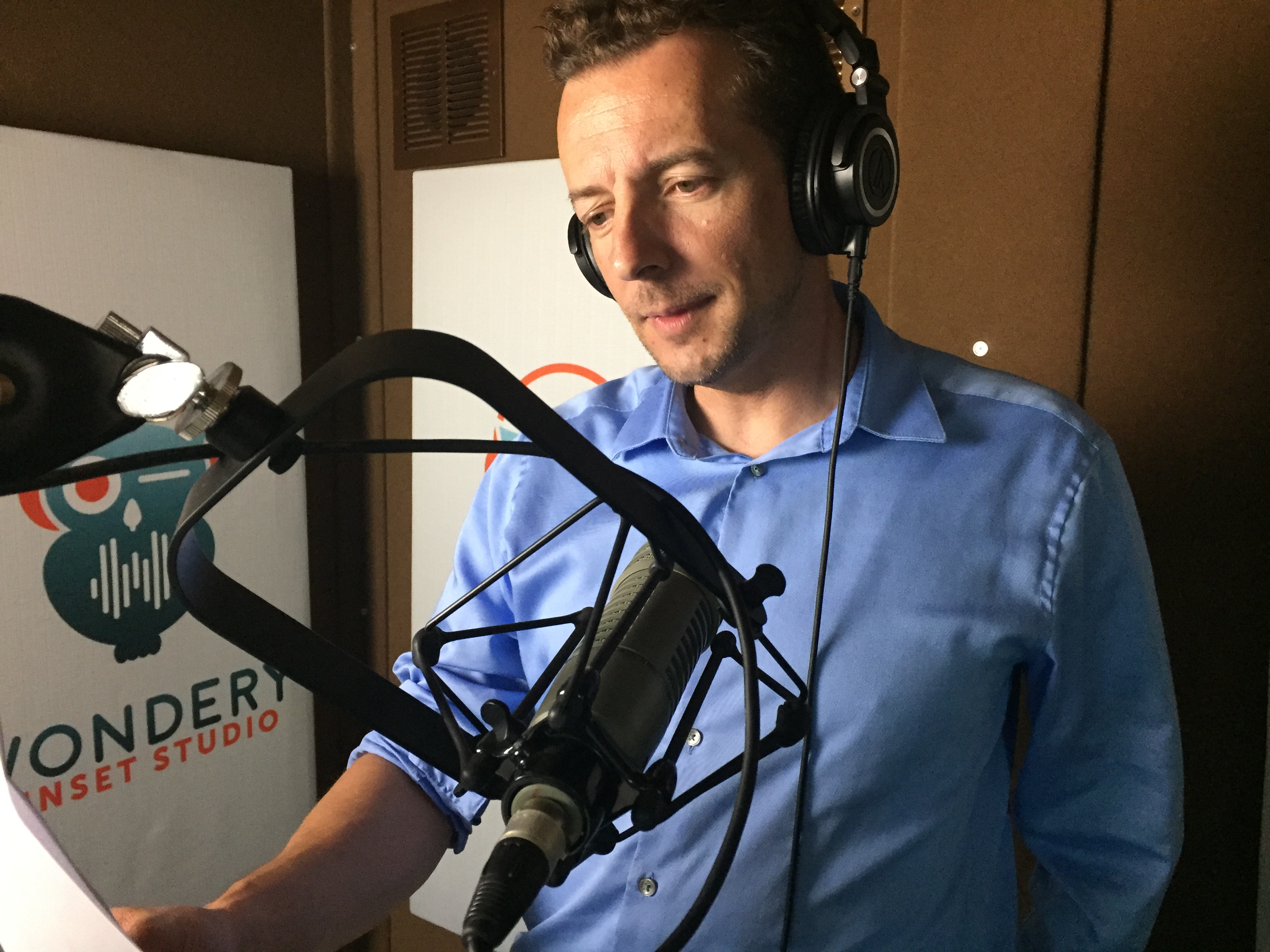‘Podcasts give you the voices of the participants. You feel like you’re in the same room with them, that they’re talking directly to you. There’s a powerful intimacy to that. You can hear subtle inflections in the voices that are very hard to capture in print.’
— Christopher Goffard,
Staff writer,
Los Angeles Times
Speaker touts podcasting as
a new lure to good journalism
By Nadine El-Bawab
Bulletin Correspondent
As digital media grow, so do the possibilities for using those digital platforms in journalism.
Christopher Goffard, author and staff writer for the Los Angeles Times will be the keynote speaker, on the subject of “Podcasts – Expanding journalism beyond our printed products,” Saturday morning, Feb. 24, at the New England Newspaper and Press Association winter convention.
Goffard is the host of a podcast, “Dirty John,” which has had more than 10 million downloads and was at the top of Apple podcast charts for a month. He shares a 2011 Pulitzer Prize for the Times’ coverage of a scandal involving eight officials looting more than $5.5 million from a California county’s poorest communities.
Goffard will discuss the importance of using podcasts and how they are increasingly becoming an important journalistic tool.
Goffard thinks that you can transfer to podcasting all of the basic skills you use as a journalist in any other medium.
The basic skills you have in terms of “how to find information, how to interview people, how to assemble your facts in a narrative are transferable to the podcast medium,” he said in an email interview.
His talk will be drawn from his personal experience with podcasting. Goffard learned how to transform a story into a podcast in three and a half months after having been a print reporter for 20 years.
Having spent the majority of his career telling stories in print, Goffard recognizes that every medium has its strengths and weaknesses, but he thinks that podcasts give the listener a special insight into a story.
Goffard said via email: “Podcasts give you the voices of the participants. You feel like you’re in the same room with them, that they’re talking directly to you. There’s a powerful intimacy to that. You can hear subtle inflections in the voices that are very hard to capture in print.”
“’Dirty John’ was a kind of experiment. We released the podcast along with a written version of the series. My hope is that the podcast draws people to the Times and they subscribe and become acquainted with the important work my colleagues have been doing,” Goffard said in the email interview.
“If the experiment increases news literacy even a little bit at a time when the mainstream media is under assault — if it helps people perceive the difference between a carefully sourced story and a random post on Facebook or Reddit — it’s done some good,” he said.
Goffard’s speech is scheduled for 9 a.m. on the second day of the convention, Feb. 24. The convention is being held at the Renaissance Boston Waterfront Hotel in South Boston.
He will also be part of a panel workshop at 10:30 that will give attendees valuable information on what it takes to create a quality podcast.

